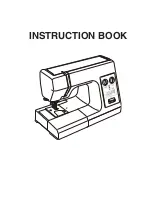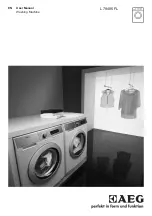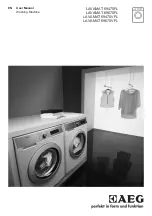
114
Glossary
ABBR. No.
(Abbreviated Number)
The ability to store full phone numbers into the dialer and then utilizing a short series of
keystrokes to speed dial that number in the future.
Access Code
A 4-digit programmable access code that prevents unauthorized operation of your Fax.
ADF
(Automatic Document
Feeder)
The mechanism that delivers a stack of document pages to the scanner one page at a time.
Automatic Reception
The mode that allows you to receive fax documents without user intervention.
Auto Print Reduction
The method of automatically reducing a received document so that it can be printed onto a
standard size piece of plain paper. For example, your machine will reduce an incoming Legal
size page to 75% of its original size so it could fit on a Letter size page.
BPS (Bits Per Second)
The amount of data that is transmitted over the phone line. Your machine can start at each
Max. Modem speed and automatically steps down to suitable speed depending on the phone
line condition and the receiving machines capabilities.
(Max. Modem Speed:
33,600 BPS)
C.C.I.T.T.
Consultative Committee on International Telegraph and Telephone. This organization has
presently developed four groups of industry standards that insure facsimile compatibility.
Character ID
A programmed proprietary code name that allows up to 16 alphanumeric characters
identifying your facsimile machine.
Character Keys
The keys that are used to enter letters and symbols for various programming functions.
Coding Scheme
The data compression method used by facsimile machines. Your machine utilizes Modified
Huffman (MH), Modified Read (MR) and Modified Modified Read (MMR) coding schemes.
COMM. JOURNAL
Refers to either the Communication Journal, Relay Transmission Report, or the Confidential
XMT Report.
Contrast
Signifies the scanning sensitivity in terms of lightness and darkness of your original
transmitting pages.
DDD
(Direct Distance Dialing)
A telephone service that allows unassisted dialing, no operator assistance is required.
Deferred Transmission
The ability to send documents to other stations at a later time.
Direct Dialing
The method of dialing where you enter the entire telephone number through the keypad.
Directory Search Dialing
Allows you to dial a full telephone number by searching the station's name entered in the
One-Touch keys or Abbreviated dialing numbers.
Directory Sheet
The list that contains the station names that are programmed into your unit.
DTMF (Dual Tone Multi-
Frequency)
Dialing method that sends a different set of frequencies for each digit of the telephone
keypad. Commonly refers to touch tone dialing.
ECM (Error Correction
Mode)
The ability to correct transmission errors as detected during the transmitting phone call.
Energy-Saver Mode
Saves energy by consuming less power than when in standby mode by turning off the fuser
unit after the specified time.
FAX Forward
The ability to forward all incoming faxes to the registered station in the specified ABBR No.
FAX Parameter List
The list that contains the home FAX parameters settings that you have programmed into your
machine.
FAX/TEL Auto Switching
The ability to share a single telephone line for both fax and voice usage.
F.C.C.
Federal Communications Commission. The U.S. Government organization that regulates
communications originating or terminating in the United States.
File
A task that has been stored into the memory of your unit. Examples are deferred
transactions.
Fixed
Print Reduction
The method that allows you to determine one reduction rate, such as 75%, for all incoming
documents.







































